Last page update:
The APEC Science Prize for Innovation, Research and Education (ASPIRE) is an annual award to recognize young scientists who have demonstrated a commitment to both excellence in scientific research, as evidenced by scholarly publication, and cooperation with scientists from other APEC member economies.
The ASPIRE Prize supports APEC’s mission to:
- enhance economic growth, trade and investment opportunities in harmony with sustainable development, through policies, innovative R&D and technologies, and knowledge sharing;
- strengthen international science and technology networks; and
- improve linkages and efficiency between research and innovation, involving and encouraging the potential of SMEs.
The host economy is asked to provide a theme to guide nominations for the ASPIRE Prize to be awarded in their host year. For the U.S. APEC year of 2011, the United States selected green growth as its theme, building on its desire that APEC actively promote environmentally sustainable economic growth and development, and help our economies successfully transition to a clean energy future.
Each member economy is invited to nominate one young scientist under the age of 40 to be considered for the ASPIRE Prize. Member economy representatives of the APEC Industrial Science and Technology Working Group (ISTWG) each put forward one nominee for their economy. Representatives then ranked the nominees in order to select a winner, who was subsequently confirmed by the ISTWG Lead Shepherd Madame Wan Zaharah Wan Mohamad of Malaysia.
John Wiley & Sons and Elsevier, two of the world’s publishers of scholarly scientific knowledge, have committed to funding prize money in the amount of US$25,000.
Below are the nominees for this year's award:
| Australia | ||
 |
Nominee: Dr. Amanda Barnard Field of Research: Theoretical and computational nanotechnology |
|
|
Dr. Barnard is a world leader in the field of theoretical and computational nanomorphology (the structure, shape and phase of materials at the nanoscale). She has investigated how nanoparticles interact with the environment and how environmental changes may affect their stability. These studies have paved the way for identifying the potential nanohazards and their environmental impacts. Dr. Barnard studied in the United States and has collaborated with scientists across APEC economies, including the United States and Japan. She has over 100 publications with over 1800 citations in peer-reviewed journals including Reports on Progress in Physics, Nature Nanotechnology, and Nano Letters. Her h-index is 24. Dr. Barnard is the leader of the Virtual Nanoscience Laboratory at the Materials Science and Engineering division of the Commonwealth Scientific and Industrial Research Organisation (CSIRO). She graduated summa cum laude with a B.Sc in Applied Physics in 2000 from the Royal Melbourne Institute of Technology (RMIT) University. She went on to earn her Ph.D. in Physics from RMIT University in 2003. |
||
| Chile | ||
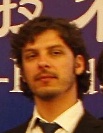 |
Nominee: Dr. Rodrigo Escobar Field of Research: Sustainable energy, Renewable energy resource assessment, Design and analysis of energy conversion systems, Nanotechnology for energy systems |
|
|
Dr. Escobar has done critical work in conducting a solar energy resource assessment across Chile, building a map that will help guide the development of future solar energy projects. He has also published studies of analyses and performance models for solar thermal power plants. In support of his research, he has been granted projects by two of Chile’s most prestigious science and technology funds. He has also cooperated with scientists in Canada, Korea, and the People’s Republic of China. He has over a dozen publications in peer-reviewed journals including Renewable Energy, the Solar Energy Journal, and Physica Scripta. Dr. Escobar is an Associate Professor at the Department of Mechanical and Metallurgical Engineering at the Pontificia Universidad Católica de Chile, Director of a Master in Energy Engineering Program, and General Manager, Solar Energy Area, DICTUC. He earned an engineering degree from the University of Santiago (2000) before earning an M.Sc. and Ph.D. in Mechanical Engineering from Carnegie Mellon University. |
||
| People’s Republic of China | ||
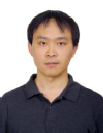 |
Nominee: Dr. Jianhui Hou Field of Research: Organic solar cells |
|
|
Dr. Jianhui Hou has conducted groundbreaking research on organic solar cells, a promising renewable energy source, in cooperation with scientists in the People’s Republic of China, United States, and Singapore. The materials he invented for organic solar cells in 2008 and 2009 achieved some of the highest power conversion efficiency results in the world. He holds several patents for his work and his papers have been among the most cited in chemistry and materials science journals. He has 41 publications in peer-reviewed journals including Nature Photonics, the Journal of the American Chemical Society, and Angewandte Chemie. Dr. Jianhui Hou is a Professor in the Institute of Chemistry at the Chinese Academy of Sciences. He was previously Director of Research at Solarmer Energy Inc. and a post doctoral researcher at the University of California, Los Angeles. He earned his B.S. in Chemistry at the University of Science and Technology Beijing (2001) and his Ph.D. at the CAS Key Laboratory of Organic Solids at the Institute of Chemistry, Chinese Academy of Sciences (2006). |
||
| Hong Kong, China | ||
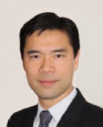 |
Nominee: Dr. Kaimin Shih Field of Research: Nanocrystalline materials for waste-to-resource technologies |
|
|
Dr. Kaimin Shih specializes in exploiting nanocrystalline materials and nanostructural features to promote sustainable waste recycling and water treatment technologies. His findings and innovations have paved the way for the reliable conversion of industrial and municipal wastes into safe eco-products and construction materials; the new anti-biofouling membranes for waste water reclamation; and the effective removal of persistent pollutants from the natural environment. He has collaborated closely with fellow scientists in the United States, Singapore, and Australia. He has primarily published in Environmental Science and Technology, Water Research, the Journal of Hazardous Materials, and the Journal of the American Ceramic Society. Dr. Shih is an Assistant Professor in the Department of Civil Engineering, University of Hong Kong. He earned his B.S. in Earth Sciences from National Cheng Kung University (1994), and received his M.S. (2000), Ph.D. (2005) and postdoctoral training (2005-07) in Environmental Engineering and Science from Stanford University. |
||
| Japan | ||
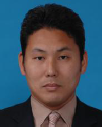 |
Nominee: Dr. Mitsuharu Oguma Field of Research: Internal combustion engine, New fuels, New fuel standardization |
|
|
Dr. Mitsuharu Oguma has led pioneering research into new fuels, including their practical use, demonstration, and standardization. In particular, he has investigated biofuels and dimethyl ether, both critical in the search for clean and renewable fuels. Dr. Oguma has actively collaborated with scientists in the APEC region through his work as a sub leader of the Working Group on Benchmarking of Biodiesel Fuel Standardization in East Asia under the Economic Research Institute for ASEAN and East Asia. He has published in the Review of Automotive Engineering and the Journal of Japanese Society of Tribologists. Dr. Oguma is the Team Leader of the Combustion and Engine Research Team, Research Center for New Fuels and Vehicle Technology, National Institute of Advanced Industrial Science and Technology (AIST). He joined AIST in 2001 as a Post-Doctoral Research, and has also served there as a Research Scientist (2003-2009) and Senior Research Scientist (2009-2010). In 2001, he earned his Ph.D. in Engineering from Ibaraki University. |
||
| The Philippines | ||
 |
Nominee: Kristine Marie Romallosa Field of Research: Nuclear safety |
|
|
Ms. Kristine Marie Romallosa has made valuable contributions to the promotion of the peaceful application of nuclear technology. She has published and presented extensively on her experience in radiation safety and controls, radiation dosimetry, radiological characterization, and calibration. She has also developed manuals and training modules, conducted training workshops, and served as thesis advisor to university students. Ms. Romallosa actively collaborates with peers across the APEC region through her involvement in projects with the International Atomic Energy Agency and the Australian Nuclear Science & Technology Organization. She has presented at numerous international conferences and has published in Physical Review A. Ms. Romallosa is a Science Research Specialist II at the Philippine Nuclear Research Institute, where she has previously served as a Science Research Analyst (2004-2009). She earned her B.S. in Applied Physics (2003) and M.Sc. in Physics (2008) from the University of the Philippines Diliman. |
||
| Russia | ||
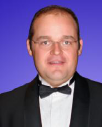 |
Nominee: Mr. Vladimir Kanin Field of Research: Flow dynamics simulation, Turbomachinery, Renewable energy solutions |
|
|
Mr. Vladimir Kanin is a researcher, inventor, and entrepreneur and has developed an innovative new approach to small and medium-sized wind power generators, including systems that can be mounted on roofs of residential buildings. This is due to the fact that his diffuser augmented axial flow turbine has a lower noise level than ordinary turbines and does not have low-frequency acoustic fluctuations. Mr. Kanin has begun commercializing his product through his company Optiflame Solutions, and has successfully led a team of international scientists to build and test the first prototypes. In 2010 this project was supported by the Skolkovo foundation. Mr. Kanin is the Founder and Director of Optiflame Solutions, Spb. Prior to this he founded AeroSolutions, a radio frequency identification (RFID) company that was sold in 2007-8. Mr. Kanin earned a degree in Applied Mathematics and Artificial Integrity from Omsk State University (1997) and an MBA from Antwerpen University Business School (2001). |
||
| Singapore | ||
 |
Nominee: Dr. Chirn Chye Boon Field of Research: RF and MM-wave research |
|
|
Dr. Chirn Chye Boon has made crucial discoveries in “green” low power radio frequency integrated circuit (RFIC) research that hold the promise of greatly reducing power consumption compared to convention RFICs. One of his integrated circuit chip designs is even energy-aware, meaning that it can adjust its performance based on the received signal strength. He has conceptualized, designed and silicon-verified 35 circuits/chips for biomedical and communication applications. He is the author of one book, two book chapters and 44 publications in peer-reviewed journals including IEEE Transaction on Circuits and Systems and IEEE Microwave and Wireless Components Letters. He is the Principal/Co-Principal Investigator for research grants of S$3,250,000. Dr. Boon is an Assistant Professor and Programme Director (RF and MM-wave) for VIRTUS at the Nanyang Technological University (NTU). He earned his Bachelor of Engineering (Honors) and a Ph.D. in Electrical and Electronic Engineering from NTU in the years 2000 and 2003 respectively. |
||
| United States | ||
 |
Nominee: Dr. Ali Javey Field of Research: Functional nanomaterials and electronics, Energy harvesting |
|
|
Dr. Ali Javey’s innovative work with nanomaterials has made great strides in developing a new generation of solar energy technology and reducing energy consumption in “green electronics.” Specifically, he has developed low cost, flexible, and lightweight photovoltaic cells that can not only achieve a theoretical efficiency of 20% or more, but can be easily rolled onto roofs and other surfaces. Dr. Javey has also developed transistor arrays that use a fraction of the power of conventional silicon transistors. He has collaborated with scientists across APEC, including in Korea, Chinese Taipei, Japan, and Singapore. He has 81 publications with over 5,000 citations in peer-reviewed journals including Nature, Advanced Materials, and the Journal of the American Chemical Society. His h-index is 30. Dr. Javey is an Associate Professor at the University of California, Berkeley and the Co-Director of the Berkeley Sensor and Actuator Center. He earned his B.S. in Chemistry from Old Dominion University (2001) and his Ph.D. in Physical Chemistry from Stanford University (2005). |
||
| Viet Nam | ||
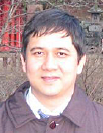 |
Nominee: Dr. Pham Thanh Huy Field of Research: Materials science, Nanoscience, Nanotechnology |
|
|
Dr. Pham Thanh Huy is dedicated to sustainable development through research in green technologies and has led key research projects on solid state light emitting devices. Dr. Huy’s use of one-dimensional nanostructures in white light emitting diodes opens the way to reducing the amount of mercury used in fluorescent (FL) and compact fluorescent lamps (CFL). He has also developed innovative new methods and technologies for the fabrication of instant start FLs, the phosphor coating of CFLs, and the recycling of glass tubes and tricolorphosphor powders. He has 30 publications in peer-reviewed journals including the International Journal of Nanotechnology, Material Science and Engineering C, and Materials Letters. Dr. Huy is an Associate Professor and Director of the Advanced Institute for Science and Technology (AIST), Hanoi University of Science and Technology. He earned a B.Sc. in Physics from Hanoi National University (1993), an M.Sc. in Materials Science from the International Training Institute for Materials Science (1995), and a Ph.D. in Physics from the University of Amsterdam (2001). |
||

